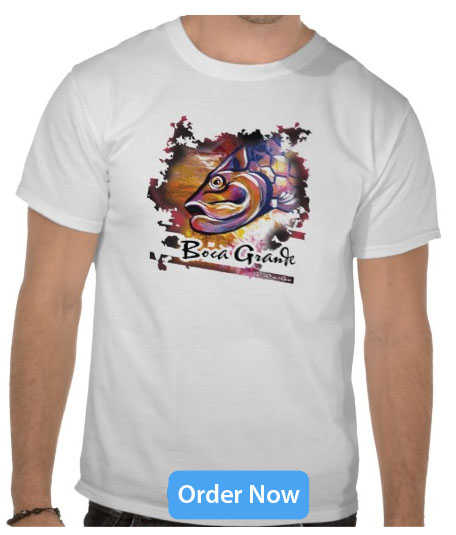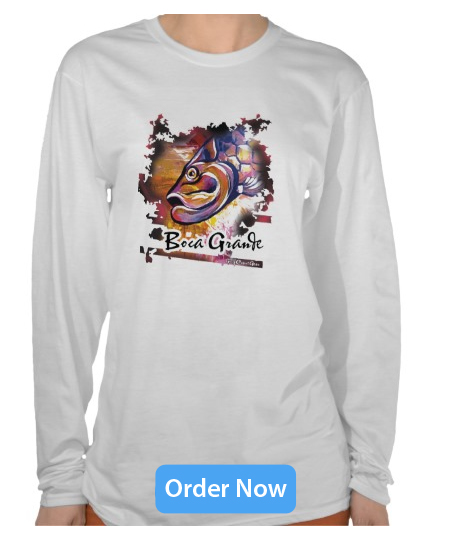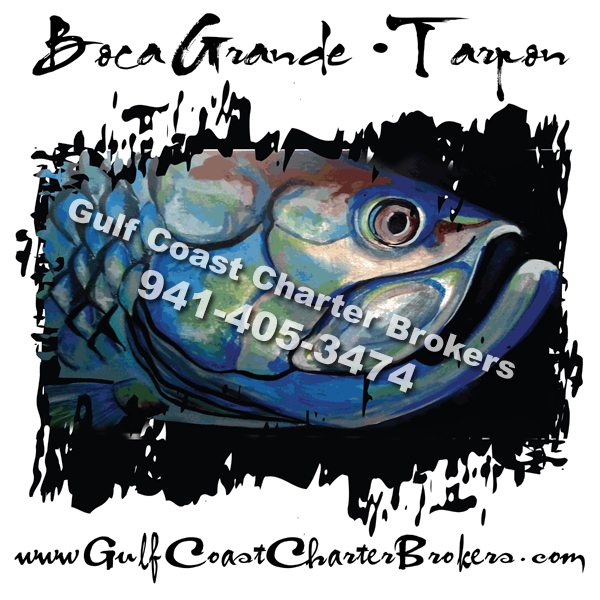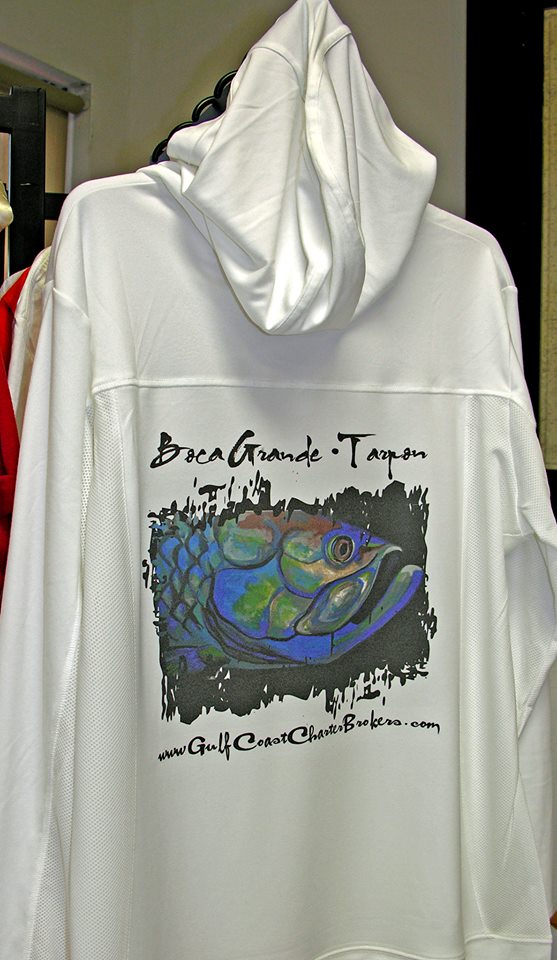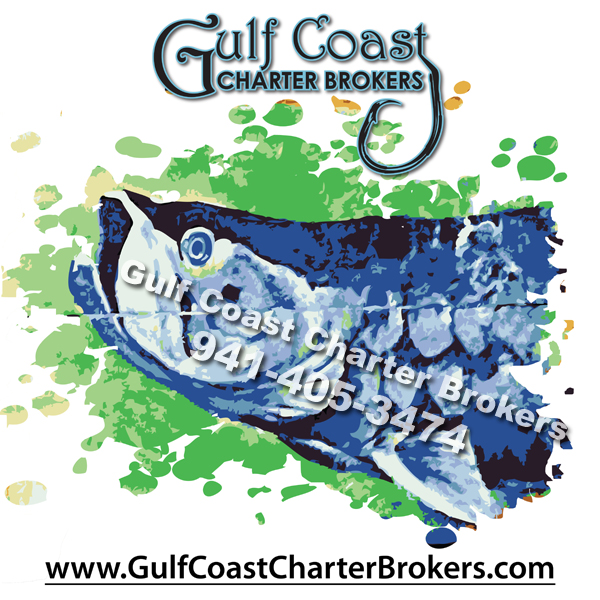|
Tarpon statewide snagging definition, gear rules in Boca Grande Pass to change
The Florida Fish and Wildlife Conservation Commission (FWC), at its Sept. 5 meeting in Pensacola, approved a two-part proposal that adds language to the current statewide snagging definition for tarpon and modifies what types of gear can be used when fishing in Boca Grande Pass. These changes go into effect Nov. 1.
“The actions taken today by the Commission represent a historic move to further protect this iconic fish,” said Commissioner Kenneth Wright. “One day, there will be a chapter on these conservation measures in a book on proactive fishery protection.”
The first part of the adopted changes include adding language to the snagging definition to prohibit catching or attempting to catch tarpon that have not been attracted or enticed to strike an angler’s gear. This change will apply to tarpon fishing statewide. The current definition for snagging or snatch-hooking is the intentional catch of a fish by any device intended to impale or hook the fish by any part of its body other than the mouth. Adding language specifying that gear must entice the fish will help further protect tarpon from being snagged.
The second part of the proposal prohibits fishing with gear that has a weight attached to a hook, artificial fly or lure in such a way that the weight hangs lower than the hook when the line or leader is suspended vertically from the rod. This change will apply to fishing for all species year-round within Boca Grande Pass. If this gear is on board a fishing vessel while inside the boundaries of the pass, it cannot be attached to any rod, line or leader and must be stowed. This change will further reduce the likelihood that tarpon in Boca Grande Pass will be snagged.
To learn more, visit MyFWC.com/Commission and click on “Commission Meetings” and “Agenda.”
-30-
AN/JL/MR/MFM
WBD/SCB
For immediate release: September 5, 2013
MyFWC.com/Commission
FWC takes action on snapper, grouper
The Florida Fish and Wildlife Conservation Commission (FWC) today approved an Oct. 1-21 supplemental recreational red snapper season in Gulf state waters for 2013 and eliminated a Feb. 1 – March 31 closure affecting several species of grouper in Gulf of Mexico state waters and a Nov. 1 – March 31 recreational season closure for vermilion snapper in Atlantic state waters. The elimination changes go into effect before the scheduled closures would have occurred. The season eliminations will also make state regulations consistent with federal regulations.
State waters are from shore to 9 nautical miles in the Gulf and from shore to 3 nautical miles in the Atlantic. Federal waters extend out from where state waters end to about 200 nautical miles.
The Oct. 1-21 supplemental recreational red snapper season in Gulf state waters is for 2013 only. An October supplemental season has also been proposed for Gulf federal waters. Federal fishery managers are still analyzing recreational harvest estimates for the 2013 regular season to determine whether or not to open the recreational red snapper season in Gulf federal waters. NOAA Fisheries Service is expected to make an announcement regarding the potential federal season sometime in the next few weeks.
Grouper species affected by elimination of the Feb. 1 – March 31 Gulf closure include black, red, red hind, rock hind, scamp, yellowfin and yellowmouth. Grouper species in state waters off Monroe County are managed by Atlantic state regulations and, therefore, are not affected by this change.
In federal waters, the Feb. 1 – March 31 closure was recently removed in waters shoreward of 20 fathoms or about 120 feet deep.
The Feb. 1 – March 31 closure was adopted as an effort to rebuild gag grouper populations during the spawning season. Today, gag grouper is managed separately from other Gulf groupers with its own harvest season, which is open July 1 through Dec. 3 in most state and all federal waters. Removing this closure will provide anglers with additional opportunities to fish for many species of grouper during February and March in Gulf state waters.
Thanks to successful state and federal fishery management, vermilion snapper populations have improved. In 2008, the Atlantic vermilion snapper population was considered to be undergoing overfishing, which means more fish were being removed from the population than was considered sustainable. At the time, state and federal fishery managers implemented several management changes, including bag limit reductions and the five-month season closure for the recreational fishery. A 2012 stock assessment revealed these management actions were successful in rebuilding vermillion snapper numbers. Reopening the season will positively benefit recreational anglers by providing additional fishing opportunities.
Learn more about Gulf grouper, Gulf red snapper and Atlantic vermilion snapper by visiting MyFWC.com/Fishing and clicking on “Saltwater” then “Recreational Regulations.”
-30-
AN/TB/MB/MFM
WBD/SCB
For immediate release: September 5, 2013
MyFWC.com/Commission
FWC implements special-events license exemption
for disabled vets, military personnel
The Florida Fish and Wildlife Conservation Commission (FWC) on Thursday, Sept. 5, implemented a new recreational hunting and fishing license exemption for disabled veterans, active and reserve duty military personnel, immediate family members of these veterans and military personnel and assistants during special events designed for the enjoyment or rehabilitation of participating military personnel and disabled veterans.
This effort to help disabled veterans and those serving in the military came about during the 2013 legislative session, when the Commission requested and the Legislature and Governor approved the new license exemption. The Commission was directed to craft rules to implement the law.
“Our disabled veterans and military have given so much to us that we wanted to give something to them, by allowing them to participate in fishing or hunting events without having to buy a license and/or permit,” Chairman Richard Corbett said.
Event organizers apply for the permit to exempt their qualifying participants.
To qualify for the exemption, special events must be designed to provide rehabilitation or enjoyment to participating disabled veterans or active or reserve duty military personnel in any branch of the U.S. Armed Forces, U.S. Coast Guard or Florida National Guard. Immediate family members (parents, spouses and children) of participating disabled veterans and military personnel and one designated assistant for each disabled veteran are included in each event’s license and permit exemptions.
Exemptions will last for the duration of the events. FWC regional directors, as the executive director’s designee, will issue these permits. Established seasons, bag or slot limits, size restrictions and all other laws will still apply. Limited-entry activities won’t be permitted under this exemption.
“We worked with stakeholders; military, veterans’ and other state agencies and related organizations in drafting the exemption,” said the FWC’s Northeast Regional Director, Shannon Wright.
Commissioners approved staff’s recommendations for implementing the rule, so now staff will advertise the proposal and file for adoption as soon as possible, as allowed by Florida Statutes, without further hearing.
For more information and to apply, visit MyFWC.com/License.
|



